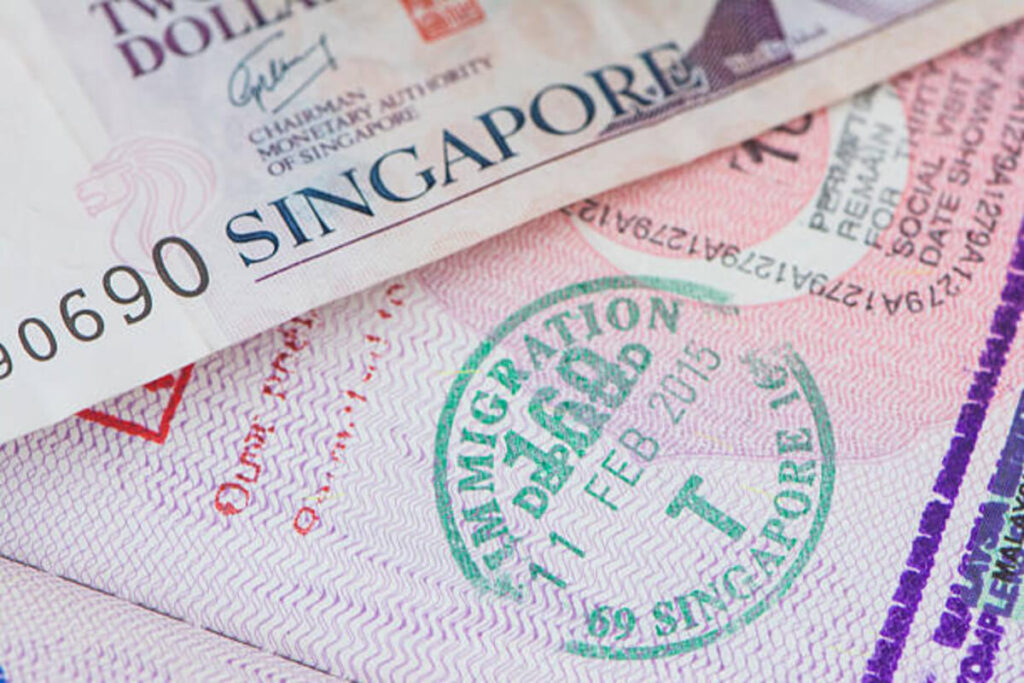How to become an electrician in the U.S. with visa sponsorship is a goal I can help you achieve by guiding you through the process. To get started, you’ll need to meet key requirements like obtaining the right certifications, understanding the National Electrical Code (NEC), and securing the necessary licenses. I’ll also walk you through finding employers willing to sponsor your visa. By simplifying each step, you’ll gain confidence that will set you on the path to becoming a licensed electrician in the U.S. Let’s discuss how you can make this happen.
Advertisement
Understanding the Basics of Being an Electrician in the U.S.
Becoming an electrician in the U.S. is an excellent career choice that provides stability and opportunities. This section covers the essential information you need to understand about the field, including the education, work experience, and types of jobs available.

Educational Requirements:
- High School Diploma or GED: The foundational requirement for most electrician positions is a high school diploma or equivalent (GED). During this period, it’s helpful to focus on subjects such as mathematics, physics, and technical education, which are crucial for understanding electrical systems.
- Math and Technical Skills: Math, especially algebra, and technical skills like problem-solving are key components of electrical work. You will be handling measurements, calculations, and working with complex circuits, so a good grasp of these areas will set you up for success.
- Vocational Training Programs (Optional but Beneficial): Many electricians enrol in vocational or trade schools that offer specific training in electrical work. These programs typically take 6 months to 2 years to complete and teach the basics of wiring, circuitry, and safety standards. While not mandatory, completing such a program can help you stand out in the competitive job market.
Key Responsibilities:
- Electricians are responsible for installing, maintaining, and repairing electrical systems in residential, commercial, and industrial settings. Your tasks will range from wiring homes to repairing industrial machines.
- Specific duties include connecting electrical systems to power sources, installing electrical outlets, panels, and switches, and ensuring everything operates safely and efficiently. Electricians also troubleshoot and repair faulty wiring, circuit breakers, and electrical components when problems arise.
Types of Electricians:
- Residential Electricians: They focus on electrical systems in homes, apartments, and other residential buildings. This includes everything from wiring new houses to replacing outlets or installing ceiling fans.
- Commercial Electricians: These electricians handle wiring for businesses, office buildings, shopping malls, schools, and hospitals. The work often involves larger-scale systems that require a higher level of expertise.
- Industrial Electricians: These specialists work with heavy machinery, factory equipment, and large electrical systems used in manufacturing and production. They typically work in factories, power plants, and warehouses.
- Specialized Roles: Other specializations include electrical engineers who design systems, solar panel installers who focus on renewable energy sources, and maintenance electricians who ensure systems are running smoothly over time.
Read: Top 10 Best Schools in Canada; Read
Key Certifications and Licensing for Electricians
To legally work as an electrician in the U.S., you’ll need to meet certain certification and licensing requirements. These standards ensure that you’re qualified to perform electrical work safely and by national and local regulations.
National Electrical Code (NEC) Compliance:
- The National Electrical Code (NEC) is a set of safety standards for electrical installations. Understanding the NEC is essential for any electrician because it ensures electrical systems are installed and maintained safely, reducing the risk of electrical fires, shocks, and other hazards.
- As the NEC is updated every three years, electricians need to stay informed about the latest changes and revisions. Continuous education and training are required to ensure compliance with the NEC’s evolving guidelines.
State-Specific Licenses:
- Each state in the U.S. has its licensing requirements for electricians, which may differ in terms of exams, qualifications, and experience. For example:
-
- Journeyman Electrician: The most common license, typically requiring a combination of education, apprenticeship, and passing a state exam.
- Master Electrician: This is a more advanced license requiring additional experience, knowledge, and leadership skills. It allows electricians to oversee projects, design systems, and run their businesses.
- Check with your state’s licensing board to understand the specific requirements for your location.
-
Additional Certifications:
- OSHA Safety Certification: The Occupational Safety and Health Administration (OSHA) certification ensures that electricians are aware of safety protocols, which is critical when working with dangerous electrical systems.
- Renewable Energy Certifications: With the growing demand for renewable energy solutions, certifications in solar or wind energy can make you more competitive. These certifications demonstrate your expertise in installing and maintaining energy-efficient systems.
- Specialized Areas Certifications: Many electricians choose to specialize further, such as in commercial work, industrial troubleshooting, or smart home technology. Specialized training and certification in these areas can lead to higher-paying and more diverse job opportunities.
Read: STEP BY STEP GUIDE TO APPLY FOR CANADA GOVERNMENT JOBS AS IMMIGRANTS
Understanding Visa Options for Electricians
If you’re an international electrician looking to work in the U.S., several visa options could allow you to do so. Understanding these visa categories and the process involved will guide you through the legal requirements.

H-2B Visa (Temporary Workers):
- Eligibility: The H-2B visa is designed for temporary nonagricultural workers, including electricians, to fill seasonal or peak-load positions. Employers must demonstrate a temporary need for foreign workers and prove that qualified U.S. workers are unavailable.
- Process: Employers initiate the process by filing Form I-129, Petition for a Nonimmigrant Worker, on behalf of the prospective employee. The Department of Labor (DOL) must certify that there are insufficient U.S. workers for the job and that employing foreign workers will not adversely affect wages and working conditions.
- Duration: The H-2B visa is typically granted for up to one year, with the possibility of extensions in increments of up to one year, not exceeding a total of three years.
- Limitations: This visa does not provide a direct path to permanent residency. H-2B workers are expected to return to their home countries upon the completion of their employment.
EB-3 Visa (Skilled Workers):
- Eligibility: The EB-3 visa is an employment-based immigrant visa for skilled workers, professionals, and other workers. Electricians typically qualify under the “Skilled Workers” category, which requires at least two years of job experience or training.
- Process: Applicants must obtain a labour certification from the DOL, demonstrating that there are no qualified U.S. workers available for the position. Following certification, the employer files Form I-140, Immigrant Petition for Alien Worker, on behalf of the applicant.
- Duration: Upon approval, the EB-3 visa grants permanent residency, allowing the individual to live and work in the U.S. indefinitely. After five years, one can apply for U.S. citizenship, provided other eligibility criteria are met.
- Considerations: The EB-3 process can be lengthy, with wait times varying based on the applicant’s country of origin due to annual and per-country limits.
Visa Sponsorship Requirements:
- Employer’s Role: Employers must demonstrate a genuine need for foreign workers and prove that they have made efforts to recruit U.S. workers without success. This includes advertising the position and documenting the recruitment process.
- Employee’s Role: Applicants must provide evidence of their qualifications, including work experience, educational credentials, and any relevant certifications. For the EB-3 visa, this includes proof of at least two years of training or experience.
Finding Employers Offering Visa Sponsorship for Electricians
To work in the U.S. as an electrician with visa sponsorship, you need to know where to look for potential employers. Certain industries are more likely to sponsor foreign workers, and using the right resources can make all the difference.
Industries Actively Hiring Electricians:
- Construction Companies: These employers are frequently looking for electricians, especially for large commercial or residential projects.
- Manufacturing Plants: Factories and power plants require electricians to maintain and repair their machinery and electrical systems.
- Renewable Energy Companies: With the increasing demand for green energy, companies in the solar and wind industries are constantly looking for skilled electricians.
- Electrical Contractors and Maintenance Firms: These firms hire electricians for ongoing projects and maintenance contracts.
Top Job Search Resources:
- Job Boards: Websites such as Indeed, LinkedIn, and Glassdoor allow you to filter search results to find companies that offer visa sponsorship.
- Specialized Job Sites: Platforms like ElectricianJobs.com provide a more focused list of electrical roles that may be open to foreign applicants.
- Recruitment Agencies: Some agencies specialize in placing foreign workers in U.S. companies. These agencies can help streamline the visa process and connect you with companies that offer sponsorship.
Networking:
- Attend trade shows, conventions, and seminars where employers meet potential employees. The National Electrical Contractors Association (NECA) and similar organizations host events that are great for networking.
- Utilize online forums and local electricians’ groups to get direct job referrals and learn more about employers who offer visa sponsorship.
Read: Guide on Canada visa application process
Step-by-Step Guide to Applying for Electrician Jobs with Visa Sponsorship
If you’re ready to apply for electrician jobs with visa sponsorship, follow these actionable steps to increase your chances of success.

Research Eligible Employers
- Identify companies that have a history of sponsoring foreign workers. Use job boards, recruitment agencies, and industry-specific websites to find these employers.
Tailor Your Resume and Cover Letter
- Emphasize your experience with electrical systems, certifications, and knowledge of safety practices.
- Include specific examples of successful projects or any special skills, like proficiency with solar systems or large-scale electrical infrastructure.
Apply to Job Openings
- Apply directly through company websites or job boards, focusing on positions that specifically mention visa sponsorship.
Interview Preparation
- Prepare to discuss your technical knowledge, experience with electrical systems, and your understanding of U.S. safety regulations.
- Show your willingness to adapt to U.S. standards and emphasize your commitment to following the NEC.
Secure a Job Offer
- Once you have an offer, your employer will initiate the visa sponsorship process and provide the necessary documentation.
Complete the Visa Application Process
- Work with your employer to file your visa application with the appropriate U.S. authorities. This includes submitting the petition to USCIS and other necessary paperwork.
Visa Application Process: What to Expect
Once your job offer is secured, the visa application process begins. Here’s a closer look at what to expect:
Employer’s Role:
- Your employer will submit the visa petition to USCIS and handle any necessary paperwork for the Labor Certification Process, which verifies the need for a foreign worker.
Your Role:
- Provide personal documents such as proof of education, work experience, and any required certifications.
- Attend an interview at the U.S. Embassy in your home country, where you’ll present your documents and discuss your qualifications.
Visa Approval Process:
- Once your visa is approved, you will receive an approval notice and instructions on how to enter the U.S. to begin working.
Becoming an electrician in the U.S. as a foreign worker is entirely possible, provided you follow the proper steps and understand the certifications, visa options, and job search strategies available. With the right preparation and dedication, you can secure a rewarding career in the growing electrical trade.


